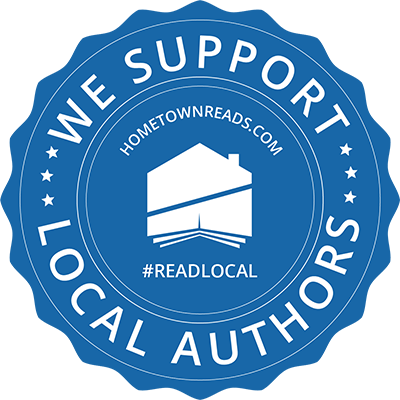I’ve been an editor for over twenty-five years, and writers ask me all the time how they can become a better writer. It’s simple, and any pro writer or editor will probably say the same thing: read and write.
Like you’re told as a teen when learning a new skill such as playing a musical instrument, you need to practice your skill of creating stories by actually writing. Practice, practice, practice. Write, write, write. Practice every day, and if you need a day off from writing because it does take a lot of energy to create from scratch, then write 6 days a week and take 1 day off to recharge.
When not writing, read other authors’ books in the genre you write in but also in genres you don’t write. Let those authors inspire you with their creativity, stories, and unique ideas. Read how they stretch their limits and discover how they immerse their readers.
So many things happen while you’re reading: 1) You are internalizing how the characters come alive on the screen in front of you. They become flesh and blood to you, and you begin to hear their voices, see their actions, and how they interact with other characters. 2) As you read stories, you empathize with those characters and learn the tropes of that genre. 3) You are entertained, and maybe you might just smile while reading verses stressing about the next page you need to write. 4) If the story has really engrossed you, you might think about these characters and their stories while you’re doing mundane household tasks. This will get kickstart your brain, get it engaged, and help you brainstorm ideas for your own stories.
Please do not mistake these tips for stealing or plagiarizing another author’s work. That is not what is meant here at all. Never ever use another author’s words in your own work. It is not an ethical practice. Instead, use reading as a way to decompress and get inspired by the pros. Using my music analogy, as kids we might listen to the Chicago Symphony Orchestra but it takes years to be able to play like those musicians.
Which books should you read? Anything and everything that interests you. If you’re like most writers, you also have a love for reading. If you’re still discovering reading, check out the following authors and their books.
For action scenes, you might enjoy: R.A. Salvatore’s novels (Drizzt’s stories), Terry Odell’s Blackthorne series, Charles DuPuy’s E.Z. Kelly series, or D.M. Herrmann’s John Henry Chronicles series.
For series family characters in a romance: Johanna Lindsey’s Malory novels or Barbara Raffin’s St. John Sibling series.
For a unique voice in a memoir: Dallas H.’s Shaking the Family Tree, Carolyn Redman’s News From Lake Boobbegone, How Steve Became Ralph by Steve Buechler, or Bruce Kirkpatrick’s Lumberjack Jesus.
For poetry that tells a story: Under the Shade of the Banyan Tree by Simi K. Rao, Poetry and Ponderings by Diamante Lavendar, or Kaleidoscope by Dallas Hembra.
For characters that stretch their limits: Katharine Nohr’s Tri-Angles series, Paul Lisnek’s Assume series, or Gini Athey’s Wolf Creek series.
For historical fiction: Margaret Mitchell’s Gone With the Wind, Sara’s Sacrifice by Flo Parfitt, or Callie Trautmiller’s Becoming American.
For law enforcement/prison topics: Try Scorpion Wind by Joseph Mosca or Prison Clown by Richard Keith.
For tips on writing like a pro: On Writing by Stephen King, Telling Lies for Fun and Profit by Lawrence Block, or Spider, Spider Spin Me a Web, also by Lawrence Block. (Find authors who speak to you and your own personal needs in their nonfiction voice.)
I’ll keep adding to this list periodically, so keep checking back. You can also ask your local librarian for suggestions in the genre that you want to learn more about reading. Enjoy, and remember practice, practice, practice writing!




 I can’t quite go as far as to say that I am grateful I was diagnosed with breast cancer, but I can say that I am grateful for all of the realizations that have resulted because of it. I was given the opportunity to tap into a reservoir of courage I didn’t even know existed. I witnessed people at their best as they surrounded me with their clinical, surgical, and scientific expertise, genuine concern, humor, compassion, energy, and love. The word friendship took on a whole new meaning with each chemo sitter who took time out of her busy life to sit with me for hours on end. And I found out that my marriage was indeed for better or worse.
I can’t quite go as far as to say that I am grateful I was diagnosed with breast cancer, but I can say that I am grateful for all of the realizations that have resulted because of it. I was given the opportunity to tap into a reservoir of courage I didn’t even know existed. I witnessed people at their best as they surrounded me with their clinical, surgical, and scientific expertise, genuine concern, humor, compassion, energy, and love. The word friendship took on a whole new meaning with each chemo sitter who took time out of her busy life to sit with me for hours on end. And I found out that my marriage was indeed for better or worse.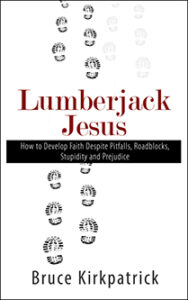


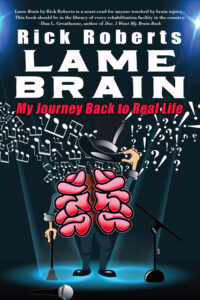 A multiplatinum rock star’s life meets an unexpected detour when a bump on the head reveals itself to be a Traumatic Brain Injury (TBI). Told with honesty and humor, Lame Brain: My Journey Back to Real Life is Rick Roberts’ story of his entangled afflictions of TBI and Alcoholism.
A multiplatinum rock star’s life meets an unexpected detour when a bump on the head reveals itself to be a Traumatic Brain Injury (TBI). Told with honesty and humor, Lame Brain: My Journey Back to Real Life is Rick Roberts’ story of his entangled afflictions of TBI and Alcoholism.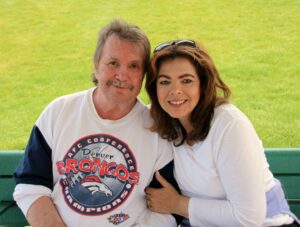 Rick Roberts is a 40-year veteran of the rock’n’roll wars. He began his recording career in 1970 with the Flying Burrito Brothers and was a major contributor to their last two albums. He went on to do two solo albums and then form the well-known band Firefall in 1974, with whom he played for seven years during their heyday. He has also been a member of Stephen Stills’ band and Linda Ronstadt’s band during his career, and has been awarded two platinum and four gold albums for his efforts.
Rick Roberts is a 40-year veteran of the rock’n’roll wars. He began his recording career in 1970 with the Flying Burrito Brothers and was a major contributor to their last two albums. He went on to do two solo albums and then form the well-known band Firefall in 1974, with whom he played for seven years during their heyday. He has also been a member of Stephen Stills’ band and Linda Ronstadt’s band during his career, and has been awarded two platinum and four gold albums for his efforts.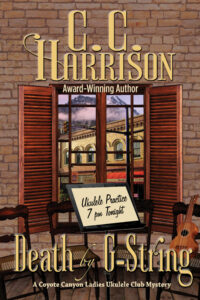 Can Viva Winter find the truth before it’s too late?
Can Viva Winter find the truth before it’s too late?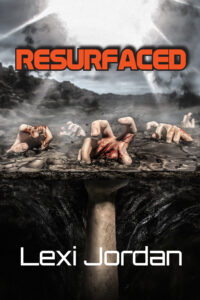 Before a large asteroid hit Earth and wiped out most of all humanity, survivors gathered in The Burrow, an underground community, with the hope of survival being the one thing on their minds. Realizing their fate, the Burrow dwellers developed a new society.
Before a large asteroid hit Earth and wiped out most of all humanity, survivors gathered in The Burrow, an underground community, with the hope of survival being the one thing on their minds. Realizing their fate, the Burrow dwellers developed a new society. About the Author:
About the Author: 

 Somewhere over the Alaskan wilderness a plane has disappeared.
Somewhere over the Alaskan wilderness a plane has disappeared.

